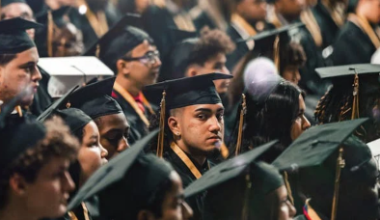The Fulbright Foreign Student Program is one of the most prestigious scholarship programs in the world, designed to foster international educational exchange and cultural diplomacy. Established in 1946, it aims to promote mutual understanding between the people of the United States and other countries.
History of the Fulbright Program
Origins and Establishment
The Fulbright Program was initiated by Senator J. William Fulbright after World War II, with the aim of using surplus war property to fund the “promotion of international good will through the exchange of students in the fields of education, culture, and science.” It was established under the Fulbright Act of 1946.
Key Milestones
Since its inception, the program has grown significantly, expanding its reach and impact. Key milestones include the establishment of binational commissions and the expansion into over 160 countries.
Growth and Expansion Over the Years
The program has continuously evolved, adapting to the changing global landscape, and now includes various sub-programs tailored to different academic disciplines and professional fields.
Purpose and Objectives
Mission of the Fulbright Program
The primary mission of the Fulbright Program is to promote mutual understanding between the United States and other nations through educational and cultural exchanges.
Specific Goals and Objectives
Specific goals include fostering international collaboration, enhancing academic and professional competencies, and contributing to the development of future leaders in various fields.
Program Structure
How the Program Is Organized
The Fulbright Program is organized into different categories, including research, study, and teaching. Each category is designed to meet the specific needs and objectives of the participants.
Different Types of Fulbright Awards
There are several types of Fulbright awards, including the Fulbright Scholar Program, the Fulbright Student Program, and the Fulbright Specialist Program, each targeting different academic and professional levels.
Eligibility Criteria
Who Can Apply?
Eligibility varies by country, but generally, applicants must have completed a bachelor’s degree or its equivalent. Professional experience and leadership potential are also key criteria.
Academic Requirements
Applicants must demonstrate academic excellence and have a well-defined project or study plan.
Professional Experience Needed
For certain programs, professional experience in the applicant’s field of study is required, especially for those applying for research-based scholarships.
Application Process
Steps to Apply
The application process involves several steps, including completing an online application, submitting transcripts, and providing letters of recommendation.
Required Documents
Applicants typically need to submit academic transcripts, a statement of purpose, and letters of recommendation.
Important Deadlines
Deadlines vary by country, but it’s crucial to start the application process well in advance to ensure all materials are submitted on time.
Selection Process
How Candidates Are Selected
Candidates are selected based on academic merit, leadership potential, and the feasibility of their proposed project or study plan.
Selection Criteria
Selection criteria include the applicant’s academic record, professional experience, and the relevance of their proposed project to their country’s needs.
Tips for a Successful Application
To increase the chances of selection, applicants should ensure their project is well-defined, demonstrate leadership potential, and seek guidance from Fulbright alumni.
Benefits of the Program
Financial Support
The Fulbright Program provides financial support, including tuition, living expenses, and travel costs.
Professional Development
Participants gain access to professional development opportunities, including workshops, conferences, and networking events.
Cultural Exchange Opportunities
The program offers unique cultural exchange opportunities, allowing participants to immerse themselves in a new culture and build lasting relationships.
Challenges and Considerations
Common Challenges Faced by Students
Common challenges include adjusting to a new academic environment, cultural differences, and homesickness.
Cultural Adjustments
Living in a new country requires cultural adjustments, which can be challenging but also rewarding.
How to Overcome These Challenges
To overcome these challenges, participants are encouraged to stay open-minded, seek support from their host institution, and connect with other Fulbright scholars.
Life as a Fulbright Scholar
Academic Life
Fulbright scholars engage in rigorous academic work, including research, coursework, and presentations.
Social Life
The program also provides opportunities for socializing with peers, participating in cultural events, and exploring the host country.
Networking Opportunities
Networking is a key component of the Fulbright experience, offering participants the chance to connect with professionals and academics from around the world.
Success Stories
Notable Alumni
The Fulbright Program boasts a vast network of notable alumni, including Nobel Prize winners, government leaders, and renowned academics.
Impact on Careers
Many alumni credit the Fulbright Program with shaping their careers, providing them with the skills and networks needed to succeed in their fields.
Fulbright in Different Countries
Regional Variations
The program varies by region, with different countries offering unique opportunities and challenges.
Country-Specific Opportunities
Certain countries offer specific Fulbright awards tailored to local needs, such as language programs or research opportunities in specific fields.
Impact of the Fulbright Program
On International Relations
The Fulbright Program plays a significant role in promoting international relations by fostering mutual understanding and collaboration between countries.
On Global Education
The program has also had a profound impact on global education, contributing to the development of academic institutions and educational policies worldwide.
Future of the Fulbright Program
Emerging Trends and Changes
As the world evolves, the Fulbright Program continues to adapt, incorporating new technologies and addressing emerging global challenges.
Future Challenges and Opportunities
Future challenges include maintaining funding and adapting to changing geopolitical landscapes, while opportunities lie in expanding the program’s reach and impact.
How to Make the Most of the Program
Tips for a Successful Experience
To make the most of the program, participants should engage fully with their host community, seek out networking opportunities, and remain open to new experiences.
Leveraging the Network
The Fulbright network is a valuable resource, offering support, collaboration opportunities, and lifelong connections.
(FAQs)
What is the Fulbright Foreign Student Program?
The Fulbright Foreign Student Program is a scholarship program that provides opportunities for international students to study, conduct research, and exchange ideas in the United States.
Who is eligible for the program?
Eligibility varies by country, but generally, applicants must have completed a bachelor’s degree and demonstrate academic excellence and leadership potential.
How do I apply for the Fulbright Program?
The application process involves completing an online application, submitting academic transcripts and letters of recommendation, and adhering to country-specific deadlines.
What are the benefits of participating in the Fulbright Program?
Benefits include financial support, professional development opportunities, and cultural exchange experiences.
What challenges might I face as a Fulbright Scholar?
Challenges include adjusting to a new academic and cultural environment, but these can be overcome with an open mind and support from the Fulbright community.
Can I work while on a Fulbright scholarship?
Generally, Fulbright scholars are not allowed to work outside their academic program, but there may be exceptions depending on the country and specific program guidelines.
How long does the program last?
The duration of the program varies, but most scholarships cover one to two academic years.
What happens after completing the program?
After completing the program, participants return to their home countries to apply the knowledge and skills they gained, often maintaining connections with the Fulbright network.
Conclusion
The Fulbright Foreign Student Program is a prestigious and life-changing opportunity, offering participants the chance to further their education, develop professionally, and engage in cultural exchange.





